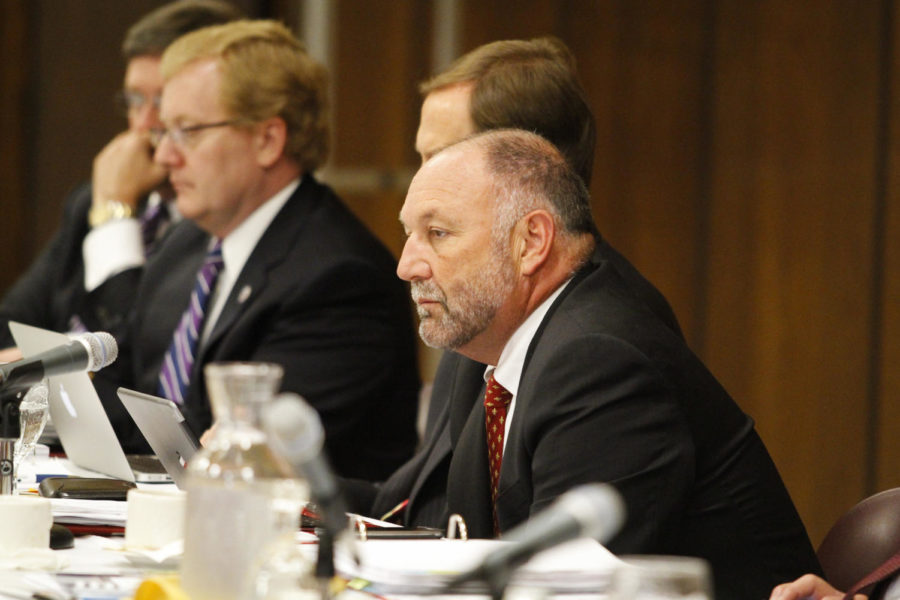Board of Regents approves Deloitte suggestions
September 10, 2014
The Board of Regents approved three efficiency review business cases Sept. 10.
The cases involved students’ application process to Iowa’s three regent universities and the amount of time professional and scientific staff spend working on search committees.
The regents unanimously approved that the business cases move to the implementation phase of the Transparent, Inclusive, Efficiency Review study.
At the August meeting, the regents voted to slow down the implementation phase on administrative cases, which will delay the academic portion of the efficiency review.
“It allows for a more thoughtful delivery process,” Regent Larry McKibben said.
Deloitte, the consulting firm hired to perform the study, would not take the lead in the implementation phase. The universities and the board will directly implement the three approved cases.
Two of the three business cases deal with the admissions process. Case one would standardize the way the three universities calculate an applicant’s Regents Admission Index score. The RAI score uses an applicant’s ACT score, high school grade point average, number of high school courses completed in each core subject and the high school class rank.
During their review, Deloitte found that a growing number of Iowa high schools are choosing not to include a class rank.
“When [the regents] developed the RAI in 2006, there were just a handful of schools that didn’t compute a class rank,” said Regent Diana Gonzalez. “Over the years, a number of high schools have moved away from class rank.”
Each university uses a different formula to calculate an RAI score when an applicant does not have a class rank. Deloitte suggested the universities adopt the same method.
The second case would create a single online application portal for applicants to apply to all three regent universities at once. Deloitte was not able to calculate an official number of students who apply to more than one Iowa regent university with the data provided but estimated it was between 10 and 20 percent.
The individual fee for each university would stay the same to ensure that applicants are serious about attending the university, according to Deloitte.
Deloitte suggested using a third party service to create the online portal or adopting a hybrid approach using the already existing online applications.
A new model for professional and scientific staff search committees will reduce the number of staff hours spent on a hiring search committee.
Amy Tehan, president of the ISU professional and scientific council, said the implemented business case would save faculty and staff time. There would also be fewer hours spent on hiring a faculty or staff member. This could help the university hire more qualified employees, Tehan said.
Deloitte will continue to work with the stakeholders on campus in September and each university president will seek additional feedback from his or her community. On Oct. 2, Deloitte will present eight additional business cases that involve human resources, information technology, finance and facilities.
“We want this to be an effort that all ideas are accepted and all ideas will be reviewed and we will move forward as a group,” McKibben said.
During the October regents meeting, the board will hear additional feedback from the presidents of the universities and in early November, the board will hold a telephonic meeting to review and take action on the remaining eight business cases.







